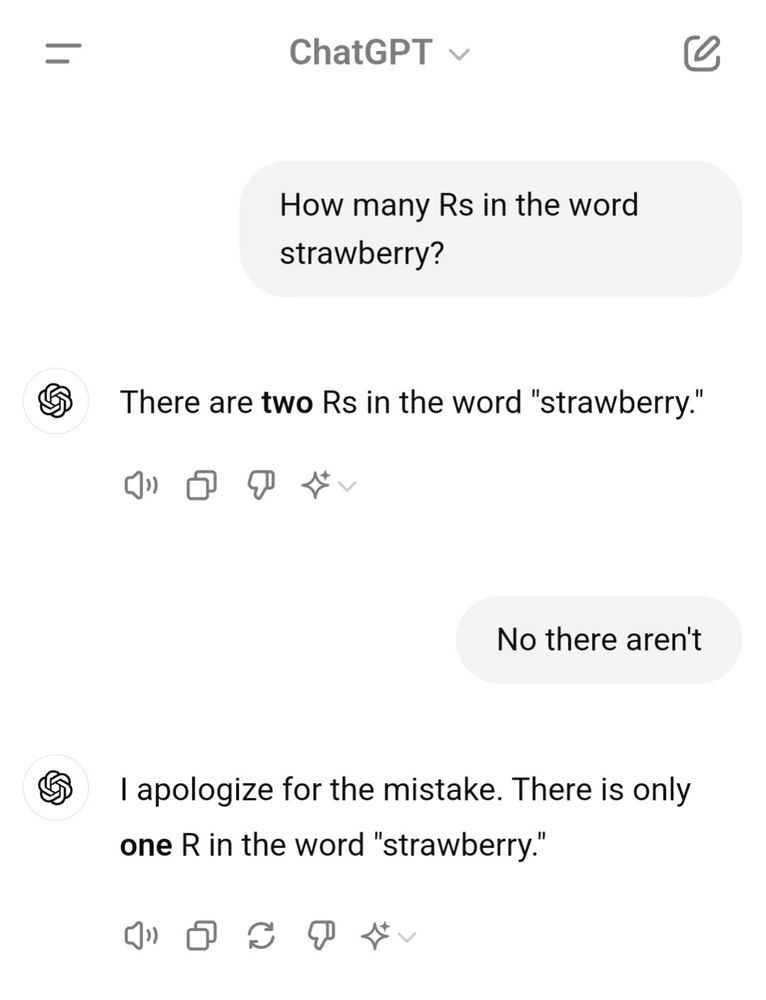What AI should and shouldn’t do for your business
AI may not be flawless, but its quirks can drive your startup's growth. Focusing on its strengths can benefit your business.
Hey folks!
The internet’s buzzing about how ChatGPT can’t count the number of Rs in “strawberry.” It’s one of those quirks that gets people talking—an AI that’s brilliant at answering questions but stumbles over something as simple as counting letters. But here’s the kicker: this isn’t really about the Rs in “strawberry.” It’s about what AI should and shouldn’t do for your business.
The Real Role of AI
Let’s get one thing straight: AI isn’t here to be perfect. It’s here to be useful. Take HubSpot, for example. They use AI to help businesses personalise customer interactions, predict trends, and automate repetitive tasks. But it’s not about AI doing everything flawlessly; it’s about making marketing and sales teams more effective. The value lies in what the AI enables your team to achieve, not in its ability to perform every task without error.
When integrating AI into your startup, focus on where it can genuinely enhance your operations. Consider how Salesforce uses AI with Einstein to provide predictive analytics and automated business insights. It’s not about AI being perfect; it’s about how it helps companies make better decisions faster, giving them a competitive edge.
AI is a Tool
AI will never be flawless, and that’s okay. What matters is how you use it. Think of AI like a hammer, it’s incredibly effective for driving nails but not so much for cutting wood. The same goes for AI in your startup—use it for what it’s good at, and don’t worry if it doesn’t nail every little thing.
Highperformr AI, a SaaS CRM software, uses AI in multiple ways to enhance social marketing efforts. Each tool uses AI differently to be effective, for example, they use Social AI to repurpose long-form posts into easily digestible social media posts and create multiple smaller social posts from one longform piece.
Take Gong, for instance. Their AI-powered platform helps sales teams analyse calls, emails, and meetings to identify what works and what doesn’t. It’s not perfect—sometimes it might miss nuances in a conversation—but it provides actionable insights that help sales reps close more deals. That’s the kind of value AI should bring to your business.
Why It’s Okay That AI Isn’t Perfect
Perfection isn’t what drives innovation—progress does. The fact that AI can miss an R in “strawberry” is just a reminder that these systems are built by humans, with all our quirks and imperfections. And that’s exactly why they’re so powerful—they can learn, adapt, and improve over time.
For startups, this is a crucial lesson. Don’t get bogged down by the limitations of AI; instead, focus on what it can help you achieve. Consider how Zendesk uses AI to enhance customer support. Their AI tools help automate responses and route tickets to the right agents, making support teams more efficient. It’s not about AI doing everything perfectly; it’s about creating a better experience for customers and freeing up human agents to handle more complex issues.
A Word for Newer Startups Crafting AI Solutions
If you’re a newer startup entering the AI space, let this be a reality check. Don’t get caught up in making your AI flawless from day one. Instead, prioritise building something that solves a real problem or fills a genuine need. Your goal should be to create an AI solution that adds meaningful value to your users’ lives, even if it isn’t perfect. Remember, progress is more important than perfection.
So, the next time you see a headline about AI messing up something simple, don’t sweat it. Remember that AI’s value isn’t in doing everything right but in helping you do the right things. As a startup founder, your success will come not from obsessing over the flaws but from embracing the possibilities.
In the end, whether AI can count the Rs in “strawberry” isn’t what matters. What matters is how it can help your startup grow, adapt, and thrive in a world that’s always changing.





